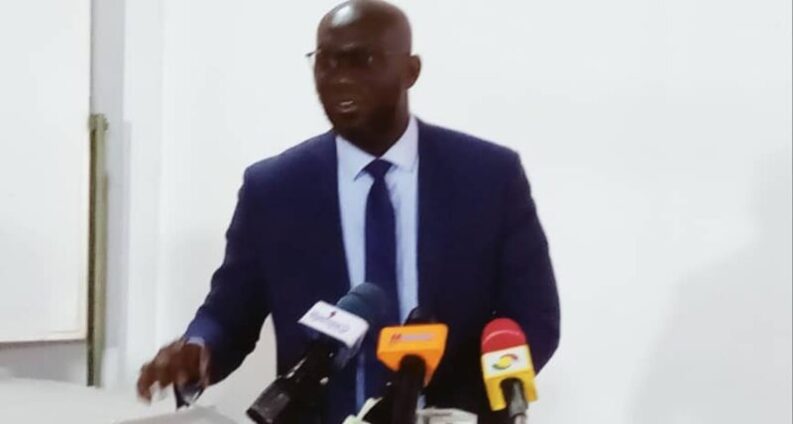Approximately 700,000 children in Ghana are susceptible to Measles and Rubella in 2023, according to the World Health Organisation (WHO) and the Center for Disease Control (CDC).
Ghana’s coverage for the first dose of Measles-containing vaccine has also been below 95 per cent for the past five years.
Dr. Fred Adomako-Boateng, the Ashanti Regional Director of Health Services, disclosed these as part of the justification for the Integrated Measles-Rubella Vaccination and Vitamin A Supplementation Campaign across the country.
Speaking at the media launch of the campaign in Kumasi, Dr. Adomako-Boateng underlined the need for all stakeholders to work towards reducing morbidity and mortality through vaccination.
The five-day exercise which seeks to increase population immunity against Measles and Rubella by 95 per cent by vaccinating 903,973 children across all the 43 districts in the region is on the theme, “Measles and Rubella Kill, Vaccinate Your Child for Good Life.”
Vaccination teams would be visiting schools, homes and public places to vaccinate children between the ages of nine-59 months (about 5 years) from October 2 to October 6.
Mothers can also take their children to vaccinating posts that would be set up in communities, health centres and hospitals.
The Regional Director further disclosed that the WHO/CDC Measles Risk Assessment Tool identified 50 districts as high-risk for measles outbreak.
“This accumulation of susceptible children creates a vulnerable population at risk of Measles and its severe consequences,” he pointed out.
According to him, as the number of unvaccinated children rises, the likelihood of outbreaks increases.
He gave a breakdown of confirmed Measles cases in the region for the last six years as 2018 -9, 2019 - 2, 2020 -1, 2021 -4, 2022 - 24, and 2023 -79.
He said no parent or guardian should miss the chance to vaccinate their children between the recommended age brackets during the campaign period to protect them from the diseases.
“As we stated, Measles and Rubella kill, the complications are something that you cannot really pay for, and you will never know who is going to be at risk,” Dr. Adomako-Boateng cautioned.
Latest Stories
-
Resignation is a personal choice, not a necessity – Spio-Garbrah on Chief Justice suspension
9 minutes -
Joy FM’s 6th Showbiz Roundtable to highlight mental health of creatives
12 minutes -
Minister assures investors of regulatory stability in energy sector as offshore drilling resumes
13 minutes -
Deputy Minority Leader demands clarity on privately financed presidential and vice presidential travels
15 minutes -
Prof Baffour Agyeman-Duah: Protecting our independent governance institutions
22 minutes -
Ashok Mohinani honoured with CEO Excellence Award in the Poly Product-Tank Sector
23 minutes -
Ghanaian teacher wins 2025 global Cambridge Dedicated Teacher Award
26 minutes -
Ayariga commends Foreign Affairs Minister for swift action on Washington Embassy incident
28 minutes -
Occupants of Church built on Lashibi Ramsar site given 1-week to pack out before demolition
37 minutes -
Mpox concerns heighten as Ashanti Region tests 10 suspected cases
39 minutes -
Ghanaian students to access education, jobs in Germany through new university partnership
43 minutes -
UNFPA embarks on free obstetric fistula surgeries for underprivileged women in five major hospitals
47 minutes -
Chinese and Malaysian nationals arrested over suspected cyber-crime activities in Weija
49 minutes -
Useless Column: Ghana to spoil Nigeria’s jollof?
53 minutes -
Thomas Partey nominated for Best West African Player Abroad at 2025 CIS Awards
1 hour

